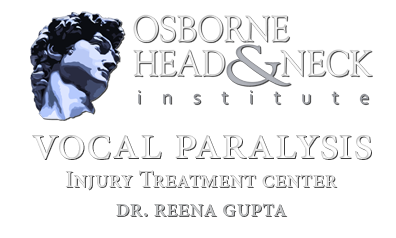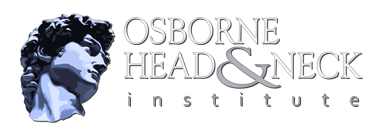Choosing a surgeon to treat your medical condition is an important decision that can significantly impact the outcome and success of your procedure. While surgeons may be fully licensed and certified to perform your procedure, this does not ensure their skill level and experience in performing your individual procedure. Effective results will be best achieved by a surgeon who is comfortable with this type of procedure and has proven his/her skills through previous procedures.
Two most common mistakes...
1. Not getting a second opinion.
Although vocal cord paralysis is not rare, it is also not common. Most physicians who are qualified to treat vocal cord paralysis see only 1-4 patients a year. This makes it difficult for most doctors to honestly say they are extremely comfortable operating on these patients.
At the Osborne Head and Neck Institute, we have developed a reputation for treating vocal cord paralysis and are a referral source for doctors who wish to refer these difficult cases.
Many of our patients have already had a surgery (i.e., thyroidectomy) and are unhappy with the appearance of their scar after the procedure. We also specialize in revision scars after other surgeries. Non-surgical techniques can often be used to improve the patient's appearance. This experience makes us extremely comfortable in managing your case.
2. Not appreciating the risks of hoarseness, failure to improve, and scar deformities associated with the surgery.
You should always:
Find out specifically how many procedures your doctor has performed.
Ask to see before and after pictures or videos of his/her patients.
The pictures should not only show how well the patients have healed but also how the patients’ voices sound. If the doctor can not show you pictures, they may not perform many of these procedures.
At the Institute, a laryngologist and Dr. Hamilton perform all of your surgeries, meaning that a laryngologist performs your voice surgery and a facial plastic surgeon performs your wound closure and cosmetic procedures. No residents, physician assistants, or medical students perform any part of your procedure, which is commonplace at many teaching hospitals and universities.


